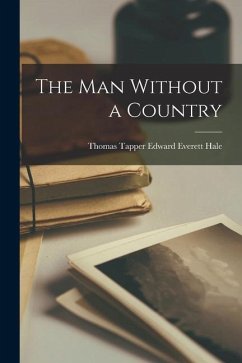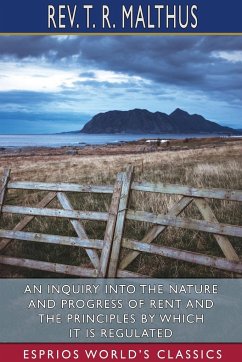Nicht lieferbar

The Man Without a Country (Esprios Classics)
Versandkostenfrei!
Nicht lieferbar
"The Man Without a Country" is a short story by American writer Edward Everett Hale (1822 -1909), first published in The Atlantic in December 1863. It is the story of American Army lieutenant Philip Nolan, who renounces his country during a trial for treason, and is consequently sentenced to spend the rest of his days at sea without so much as a word of news about the United States. Hale skillfully convinced many readers that Nolan was an actual figure, thus increasing the story's effectiveness as a piece of patriotic literature. He achieved this realism through verisimilitude. By frequently m...
"The Man Without a Country" is a short story by American writer Edward Everett Hale (1822 -1909), first published in The Atlantic in December 1863. It is the story of American Army lieutenant Philip Nolan, who renounces his country during a trial for treason, and is consequently sentenced to spend the rest of his days at sea without so much as a word of news about the United States. Hale skillfully convinced many readers that Nolan was an actual figure, thus increasing the story's effectiveness as a piece of patriotic literature. He achieved this realism through verisimilitude. By frequently mentioning specific dates and places and using numerous contemporary references, Hale grounds his story in a firm foundation of history and makes the story seem like a record of actual events.









